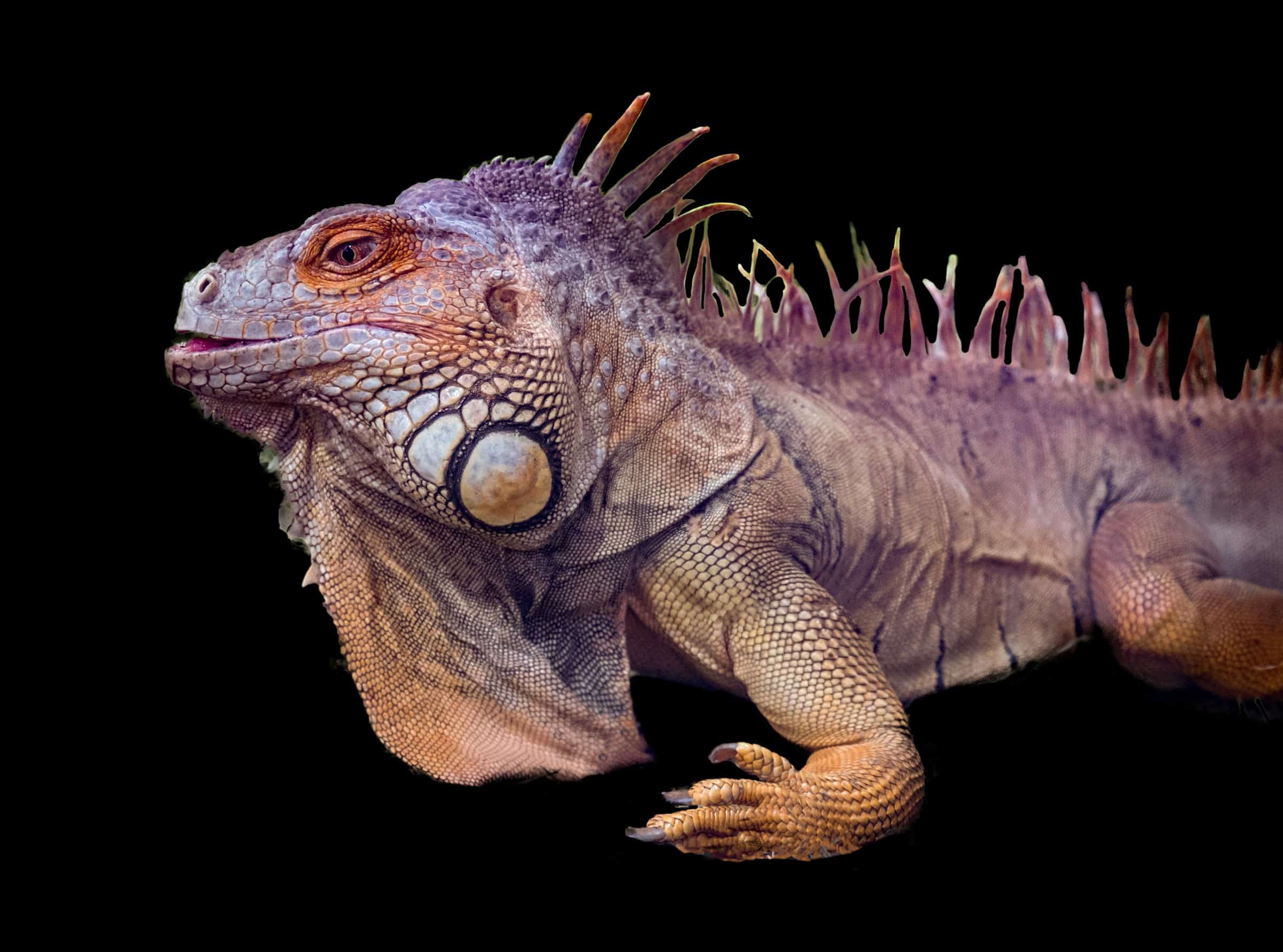How do you prepare a suitable habitat for a pet iguana in a temperate British climate?

Are you considering adopting an iguana as a pet in a climate like Britain's? Well, you've picked an exotic reptile, known for their vibrant green color, that requires specialized care and a thorough understanding of their needs. This article will guide you through everything you need to know to provide a suitable habitat for your future pet iguana in a temperate climate like Britain's.
Understanding the Iguana Species
Before diving into the details of setting up your pet iguana's habitat, it is crucial to understand this exotic creature. Iguanas belong to the largest group of reptiles, the Squamata, and are members of the Iguanidae family. These creatures are commonly found in tropical regions, hence the need for careful planning and preparation to house them in a British climate.
En parallèle : What are the environmental enrichment strategies for a pet fox in a suburban UK garden?
Iguanas are predominantly herbivores, favoring a diet of fruits, vegetables, and plants. These animals are also known for their need for high temperatures and exposure to ultraviolet B (UVB) light for a substantial part of the day. It's essential to replicate these conditions as closely as possible when considering keeping an iguana as a pet.
Building the Enclosure
The enclosure is where your iguana will spend most of its time, so it's imperative to create a space that mimics their natural habitat as closely as possible. The size of the enclosure will depend on the size of your iguana. Adult iguanas can grow up to six feet long, so bear in mind that the enclosure will need to accommodate your pet as it grows.
Lire également : What are the legal and ethical considerations for rehabilitating a wild rabbit in the UK?
Your iguana's enclosure should be well-ventilated to prevent respiratory diseases. The enclosure should also be easy to clean, as maintaining a clean environment is crucial to the health of your pet iguana.
One key factor in building an enclosure for your iguana is the availability of UVB light. As cold-blooded animals, iguanas regulate their body temperature by basking in the sun. In Britain, where the weather can be unpredictable, installing UVB lights in the enclosure is crucial for maintaining their body temperature and for vitamin D synthesis.
Temperature and Lighting
Maintaining the optimal temperature and lighting conditions is essential for iguana care. Iguanas thrive in a temperature range of 80 to 90 degrees Fahrenheit during the day, and 70 to 75 degrees Fahrenheit at night. A ceramic heat emitter or a basking bulb can be used to maintain these temperatures within the enclosure.
UVB lighting is of utmost importance for iguanas. These lights should be left on for 10-12 hours each day to mimic the light cycle in their natural environment. To ensure the most effective use of these lights, they should be placed at a distance of 12-18 inches from the basking spot.
Housing Plants in the Enclosure
Adding plants to the enclosure not only adds aesthetic value but also contributes to the overall health and happiness of your pet. Live plants provide a more natural environment, encourage activity, and can even contribute to your iguana's diet.
Non-toxic plants like hibiscus, spider plants, and ficus are suitable options. However, remember to avoid plants that are harmful to iguanas such as ivy, philodendron, and most types of ferns.
Diet and Water
As herbivores, iguanas require a diet rich in fruits, vegetables, and leafy greens. It's advised to offer a wide variety of food to ensure they get a balanced diet. Foods high in oxalic acid, like spinach and beet greens, should be avoided as they can inhibit calcium absorption.
Fresh, clean water should be available at all times in a large shallow dish. Iguanas may also appreciate a good soak or a spray with lukewarm water from a spray bottle.
Taking care of a pet iguana in a temperate British climate might seem daunting, but with proper preparation, you can create a suitable habitat for this exotic pet. With adequate temperature regulation, UVB light provision, a diet rich in fruits and vegetables, a spacious enclosure, and the right selection of plants, you can ensure your pet iguana thrives in its new home.
Handling and Socializing with Your Iguana
While iguanas are known for their striking visuals and exotic nature, it's essential to remember that they need more than just a well-constructed habitat. Handling your pet iguana is critical for building trust and ensuring its emotional wellbeing. However, this requires a delicate touch, as iguanas are naturally skittish creatures and can be easily stressed by aggressive or uneasy handling.
Start with brief interactions, letting your iguana become accustomed to your presence gradually. This can be as simple as spending time near the enclosure and speaking softly to your iguana, allowing it to recognise your voice.
When handling your iguana, always support its body, especially the abdominal area. Never grab or hold an iguana by its tail, as they can detach this part of their body in a distressing process called autotomy. Also, be aware that iguanas, especially the green iguana, have strong jaws and can bite if they feel threatened.
It's also worth noting that these animals are diurnal, meaning they are most active during daylight hours. Thus, interactions should ideally take place during the day, when your iguana is naturally more receptive.
Iguana Health and Lifespan
Just like any other pet, iguanas require ongoing care to ensure their health and longevity. Regular veterinary check-ups are essential for the early detection of any potential health concerns. Common health issues for iguanas include metabolic bone disease caused by inadequate UVB exposure and a diet deficient in calcium, respiratory infections resulting from poor ventilation or incorrect temperatures, and parasites.
A healthy iguana will be alert and active, with clear eyes, healthy skin, and a good appetite. Any noticeable changes in your iguana's behaviour, such as lethargy, loss of appetite, or changes in bowel movements, should be addressed immediately with a veterinarian experienced in reptile care.
Iguanas have a surprisingly long lifespan, with many reaching up to 20 years in captivity with proper care. This means adopting an iguana is a long-term commitment that should not be taken lightly.
Wrapping it Up
Owning a pet iguana in a temperate British climate is undoubtedly a challenge, but one that can be incredibly rewarding with the right knowledge and preparation. From understanding the species, to building the enclosure, maintaining optimum temperature and lighting, housing plants, and handling and caring for your iguana, there is a lot to consider. But with dedication, patience, and the right care, your pet iguana can not only survive but thrive, bringing a touch of the tropics to your British home.
Remember, each iguana is unique and may require slight adjustments to its care and habitat. However, following the general guidelines in this care sheet, coupled with regular check-ups and a lot of love, your exotic pet will have a long, healthy, and happy life.
So, are you ready for the adventure of pet iguana ownership? With the right knowledge and preparation, the experience can be as vibrant and exotic as the iguanas themselves.
